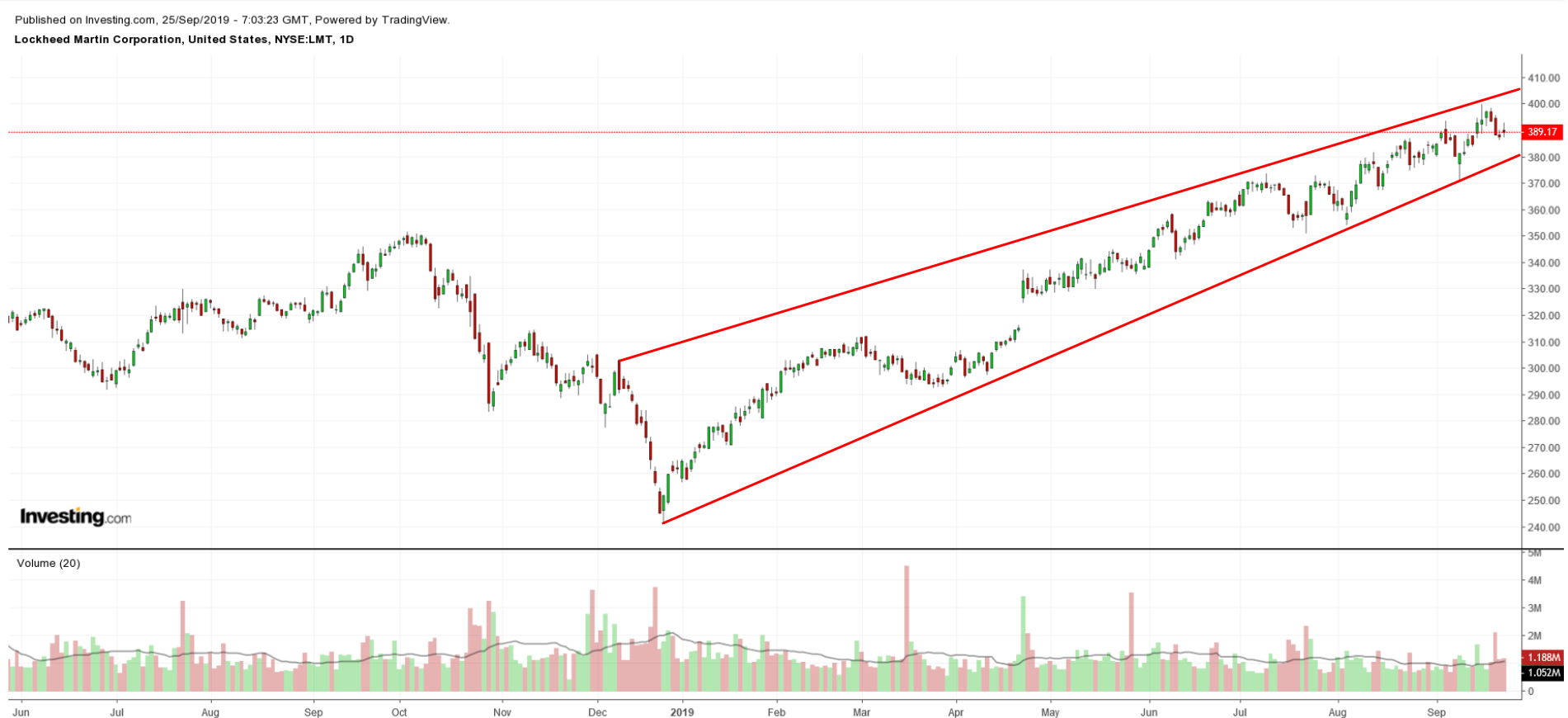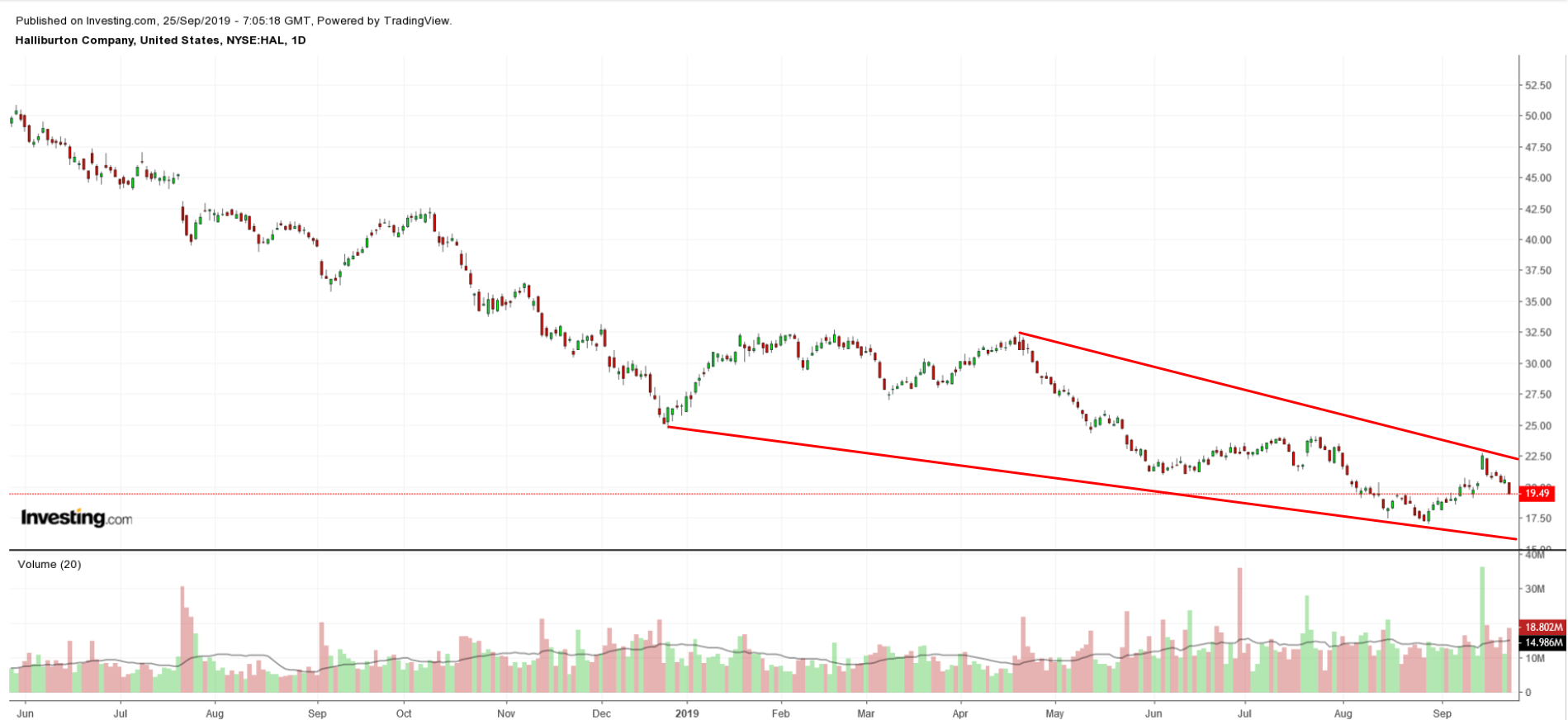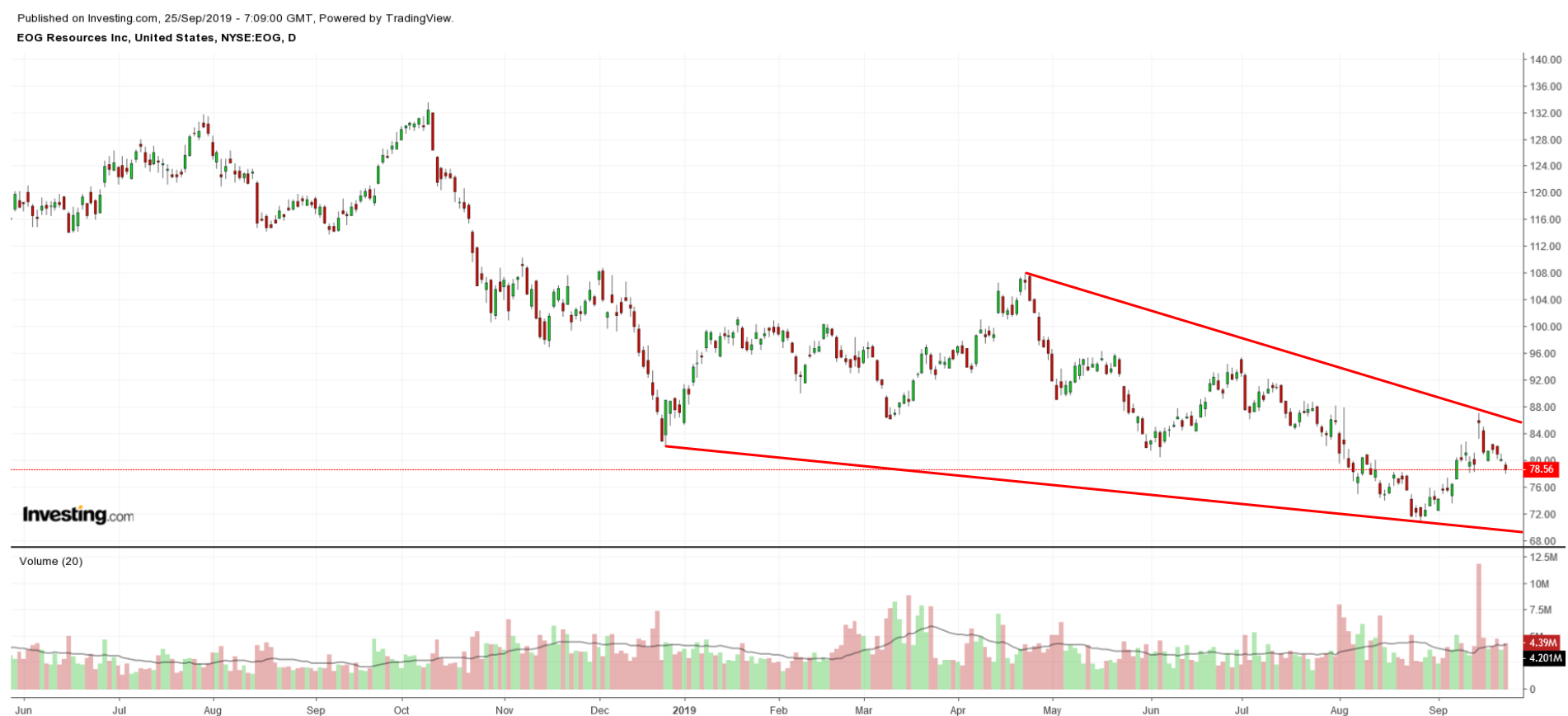Even after the Sept. 14 attacks on Saudi Aramco oil facilities initially wiped out about 50% of the Kingdom’s daily output, tensions in the Middle East continue to rise. Iran has been widely blamed for the strikes which have stirred the region and raised concerns about the possibility of war.
Further escalation of these geopolitical tensions would likely positively impact three stocks on our radar—two from the energy sector, which are expected to benefit if oil prices rise again, and one from the defense sector.
1. Lockheed Martin: Largest Defense Contractor
Lockheed Martin (NYSE:LMT) a global aerospace, defense, security and advanced technologies giant is both the world's largest defense contractor and the Pentagon's primary vendor.
With the hostility between Saudi Arabia and Iran threatening to turn into a full-blown war, it makes sense to focus on Lockheed since most of its revenues are derived from military sales.
The company's missiles and fire control unit, which makes the Terminal High Altitude Area Defense (THAAD) missile among other things, was one of its best-performing units in the most recent quarter, with sales growing almost 16% to $2.41 billion.
Sales from its aeronautics business, its largest segment, rose about 4% to $5.55 billion, powered by higher production of the F-35 stealth jet. The corporation delivered 29 F-35 combat aircraft in the quarter, compared with 25 in the year-ago period. Lockheed also said it was on track to deliver 131 F-35s in 2019. The stealth fighter jet is the company's biggest growth driver and accounts for about a third of total revenue.

Shares of the aerospace and defense contractor ended at $389.17 on Tuesday, not far from their recent record high of $399.96 reached on Sept. 17, giving it a market cap of $109.9 billion.
2. Halliburton: Leading Oil Services Corporation
Halliburton (NYSE:HAL), one of the world's largest oil field service companies, has operations in more than 70 countries. The Houston-based firm posted a strong increase outside North America in its most recent earnings report, with revenue from international markets jumping more than 12% to $2.60 billion in the second quarter.
The corporation will likely be a top contender on contracts to repair and rebuild damaged oil infrastructure across the Mideast as tensions between Washington, Riyadh and Tehran remain high. Additional attacks on crude pipelines and oil refineries in the region would lead to a surge in its revenue.

Shares of the field service provider, which soared 11% in the immediate aftermath of the Saudi attack, ended at $19.49 last night, giving it a market cap of $17.1 billion.
In addition to benefiting from rising geopolitical fears, Halliburton currently has an appealing dividend yield of 3.52% with a quarterly dividend of $0.18 per share, making it an extremely attractive play in the current environment of declining rates.
3. EOG Resources: Primary U.S. Shale Producer
While EOG Resources (NYSE:EOG) might only be the third-largest oil producer in the U.S., trailing Chevron (NYSE:CVX) and ExxonMobil (NYSE:XOM), it is by far the country's leader in extracting oil from tight shale formations. During the second quarter of 2019, EOG produced an average of 455,700 barrels per day (bpd) from shale formations across the lower 48 states, setting a quarterly record.
The Houston-based company is the largest acreage holder in the Eagle Ford shale region, boasting more than 500,000 acres. EOG also holds a large acreage position across the Permian, Bakken, DJ Basin and Powder River Basin.
When elevated tensions in the Middle East boost oil prices EOG Resources is well-positioned to profit. Though it benefits from the rising prices, it has no production in the troublesome region. As such, there are no output disruptions.

The shale producer’s stock—which jumped 7% the day after the attack on Saudi Arabia—closed at $78.56 on Tuesday, giving it a market cap of $45.6 billion.
EOG’s dividend yield is now 1.42% with a quarterly payout of $0.29 per share. That's an increase of 72% over the past two years, which further enhances the stock's appeal.
